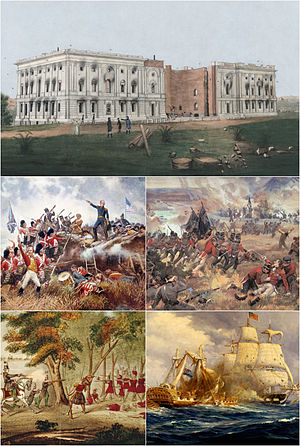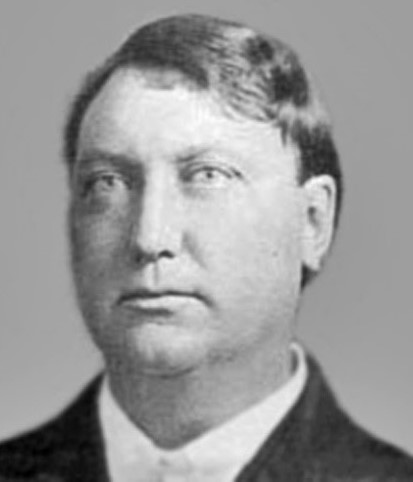
December 30 is the 364th day of the year (365th in leap years) in the Gregorian calendar. There is one day remaining until the end of the year.
Holidays
- Christian Feast Day:
- Day of the Declaration of Slovakia as an Independent Ecclesiastic Province (Slovakia)
- Freedom Day (Church of Scientology)
- Rizal Day (Philippines)
- The sixth day of Christmas. (Western Christianity)
In 999, Battle of Glenmama: The combined forces of Munster and Meath under king Brian Boru inflict a crushing defeat on the allied armies of Leinster and Dublin near Lyons Hill in Ireland.
In 1066, Granada massacre: A Muslim mob storms the royal palace in Granada, crucifies Jewish vizier Joseph ibn Naghrela and massacres most of the Jewish population of the city.
In 1419, Hundred Years’ War: Battle of La Rochelle
In 1460, Wars of the Roses: Battle of Wakefield.
In 1702, Queen Anne’s War: James Moore, Governor of the Province of Carolina, abandons the Siege of St. Augustine.
In 1768, Ruth Blay, American murderer (b. 1737) dies. She was executed by hanging after being convicted of concealing the body of her illegitimate child in the floor of the barn next to the house in which she was staying. She was granted 3 reprieves before the execution. Blay was the last female executed by New Hampshire.

In 1813, War of 1812: British soldiers burn Buffalo, New York.
In 1816, The Treaty of St. Louis (1816) between the United States and the united Ottawa, Ojibwa, and Potawatomi Indian tribes is proclaimed.
In 1825, The Treaty of St. Louis (1825) between the United States and the Shawnee Nation is proclaimed.

In 1853, Gadsden Purchase: The United States buys land from Mexico to facilitate railroad building in the Southwest. The Gadsden Purchase is a 29,640-square-mile (76,800 km2) region of present-day southern Arizona and southwestern New Mexico that was purchased by the United States in a treaty signed by James Gadsden, the then American ambassador to Mexico at the time, on December 30, 1853. It was then ratified, with changes, by the U.S. Senate on April 25, 1854, and signed by 14th President Franklin Pierce, with final approval action taken by Mexico‘s government and their General Congress or Congress of the Union on June 8, 1854. The purchase was the last territorial acquisition in the contiguous United States to add a large area to the country.
In 1872, America’s first black (mixed race) governor took office on December 9th as Pinckney Benton Stewart Pinchback became acting governor of Louisiana.
In 1890, Following the Wounded Knee Massacre, the United States Army and Lakota warriors face off in the Drexel Mission Fight.
In 1896, Filipino patriot and reform advocate José Rizal is executed by a Spanish firing squad in Manila, Philippines.
In 1897, The British Colony of Natal annexes Zululand.
In 1903, A fire at the Iroquois Theater in Chicago, Illinois kills at least 605.
In 1905, Former Idaho Governor Frank Steunenberg is assassinated at the front gate of his home in Caldwell.
In 1906, The All-India Muslim League is founded in Dacca, East Bengal, British India. It went on to lay the foundations of Pakistan.
In 1916, The last coronation in Hungary is performed for King Charles IV and Queen Zita.
In 1919, Lincoln’s Inn in London, England, UK admits its first female bar student.
In 1922, The Union of Soviet Socialist Republics is formed.
In 1927, The Ginza Line, the first subway line in Asia, opens in Tokyo, Japan.
In 1936, The United Auto Workers union stages its first sitdown strike.
In 1943, Subhas Chandra Bose raises the flag of Indian independence at Port Blair.
In 1944, King George II of Greece declares a regency, leaving the throne vacant.
In 1947, King Michael I of Romania is forced to abdicate by the Soviet Union-backed Communist government of Romania.
In 1948, The Cole Porter Broadway musical, Kiss Me, Kate (1,077 performances), opens at the New Century Theatre and becomes the first show to win the Best Musical Tony Award.
In 1958, The Guatemalan Air Force sinks several Mexican fishing boats alleged to have breached maritime borders, killing 3 and sparking international tension.
In 1965, Ferdinand Marcos becomes President of the Philippines.

In 1970, Sonny Liston, American boxer (b. 1932) is found dead by his wife, Geraldine, in their Las Vegas home on January 5, 1971. On returning home from a two-week trip, Geraldine had smelled a foul odor emanating from the main bedroom and on entering saw Sonny slumped up against the bed, a broken foot bench on the floor. Authorities theorized that he was undressing for bed when he fell over backward with such force that he broke the rail of the bench. Geraldine called Sonny’s attorney and his doctor, but did not notify the police until two to three hours later. While there was controversy about his death, officially, Liston died of lung congestion and heart failure.
He was an American professional boxer who competed from 1953 to 1970. A dominant contender of his era, he became world heavyweight champion in 1962 after knocking out Floyd Patterson in the first round, repeating the knockout the following year in defense of the title; in the latter fight he also became the inaugural WBC heavyweight champion. Liston was particularly known for his toughness, formidable punching power, long reach, and intimidating appearance.
Although Liston was widely regarded as unbeatable, he lost the title in 1964 to Cassius Clay (later known as Muhammad Ali), who entered as a 7–1 underdog. Controversy followed with claims that Liston had been drinking heavily the night before the fight. In his 1965 rematch with Clay, Liston suffered an unexpected first-round knockout that led to unresolved suspicions of a fix. He was still a world-ranked boxer when he died under mysterious circumstances in 1970. Underworld connections and his unrecorded date of birth added to the enigma.
The Ring magazine ranks Liston as the seventh greatest heavyweight of all time, while the respected boxing writer Herb Goldman ranked him second. In his book, The Gods of War, Springs Toledo argued that Liston, when at his peak in the late 1950s and early 1960s, could be favored to beat just about every heavyweight champion in the modern era with the possible exception of Muhammad Ali.
In 1972, Vietnam War: The United States halts heavy bombing of North Vietnam.
In 1977, For the second time, Ted Bundy escapes from his cell in Glenwood Springs, Colorado.

In 1979, Richard Rodgers, American playwright and composer (b. 1902) died in 1979 at age 77 after surviving cancer of the jaw, a heart attack, and a laryngectomy. He was cremated and his ashes were scattered at sea. He was an American composer of music for more than 900 songs and for 43 Broadway musicals. He also composed music for films and television. He is best known for his songwriting partnerships with the lyricists Lorenz Hart and Oscar Hammerstein II. His compositions have had a significant impact on popular music up to the present day, and have an enduring broad appeal. Rodgers was the first person to win what are considered the top show business awards in television, recording, movies and Broadway—an Emmy, a Grammy, an Oscar, and a Tony—now known collectively as an EGOT. He has also won a Pulitzer Prize, making him one of two people (Marvin Hamlisch is the other) to receive each award.
In 1981, In the 39th game of his third NHL season, Wayne Gretzky scores five goals, giving him 50 on the year and setting a new NHL record previously held by Maurice Richard and Mike Bossy, who earlier had each scored 50 goals in 50 games.
In 1993, Israel and Vatican City establish diplomatic relations.
In 1996, In the Indian state of Assam, a passenger train is bombed by Bodo separatists, killing 26.
In 1996, Proposed budget cuts by Benjamin Netanyahu spark protests from 250,000 workers who shut down services across Israel.
In 1997, In the worst incident in Algeria‘s insurgency, the Wilaya of Relizane massacres, 400 people from four villages are killed.
In 2000, Rizal Day bombings: A series of bombs explode in various places in Metro Manila, Philippines within a period of a few hours, killing 22 and injuring about a hundred.
In 2004, A fire in the República Cromagnon nightclub in Buenos Aires, Argentina kills 194.
In 2004, Artie Shaw, American clarinet player, composer, and bandleader (b. 1910) Widely regarded as “one of jazz’s finest clarinetists,” dies. Shaw led one of the United States’ most popular big bands in the late 1930s through the early 1940s. Their signature song, a 1938 version of Cole Porter‘s “Begin the Beguine“, was a wildly successful single and one of the era’s defining recordings. Musically restless, Shaw was also an early proponent of Third Stream, which blended classical and jazz, and recorded some small-group sessions that flirted with be-bop before retiring from music in 1954.
Shaw first gained attention with his “Interlude in B-flat” at a swing concert at the Imperial Theater in New York in 1935. During the swing era, his big band was popular with hits like “Begin the Beguine” (1938), “Stardust” (with a trumpet solo by Billy Butterfield), “Back Bay Shuffle”, “Moonglow“, “Rosalie” and “Frenesi“. The show was well-received but forced to dissolve in 1937 because the sound was not commercial. He was an innovator in the big band idiom, using unusual instrumentation; “Interlude in B-flat”, where he was backed with only a rhythm section and a string quartet, was one of the earliest examples of what would be later dubbed third stream. His incorporating of stringed instruments could be attributed to the influence of classical composer Igor Stravinsky.
In addition to hiring Buddy Rich, he signed Billie Holiday as his band’s vocalist in 1938, becoming the first white bandleader to hire a full-time black female singer to tour the segregated Southern US. However, after recording “Any Old Time” she left the band due to hostility from audiences in the South, as well as from music company executives who wanted a more “mainstream” singer. His band became enormously successful, and his playing was eventually recognized as equal to that of Benny Goodman: longtime Duke Ellington clarinetist Barney Bigard cited Shaw as his favorite clarinet player. In response to Goodman’s nickname, the “King of Swing”, Shaw’s fans dubbed him the “King of the Clarinet.” Shaw, however, felt the titles were reversed. “Benny Goodman played clarinet. I played music”, he said. In 1938 DownBeat Magazine’s readers agreed with Shaw’s evaluation and named Artie Shaw as the King of Swing.
In 2005, Tropical Storm Zeta forms in the open Atlantic Ocean, tying the record for the latest tropical cyclone ever to form in the North Atlantic basin.
In 2006, Madrid–Barajas Airport is bombed.
In 2006, The Indonesian passenger ferry MV Senopati Nusantara sinks in a storm, resulting in at least 400 deaths.
In 2006, Former President of Iraq Saddam Hussein is executed.
In 2009, A segment of the Lanzhou–Zhengzhou–Changsha pipeline ruptures in Shaanxi, China, and approximately 150,000 l (40,000 US gal) of diesel oil flows down the Wei River before finally reaching the Yellow River.
In 2009, A suicide bomber kills nine people at Forward Operating Base Chapman, a key facility of the Central Intelligence Agency in Afghanistan.
In 2011, Owing to a change of time zone the day is skipped in Samoa and Tokelau.
In 2012, Carl Woese, American microbiologist and biophysicist (b. 1928) died. Woese is famous for defining the Archaea (a new domain or kingdom of life) in 1977 by phylogenetic taxonomy of 16S ribosomal RNA, a technique pioneered by Woese which revolutionized the discipline of microbiology.
In 2013, More than 100 people are killed when anti-government forces attack key buildings in Kinshasa, Democratic Republic of the Congo.
In 2014, Luise Rainer, German-English actress (b. 1910) dies in London at the age of 104 from pneumonia. She was a German and American film actress. She was the first actor to win multiple Academy Awards and the first person to win them consecutively. At the time of her death, she was the longest-lived individual ever to have received an Academy Award.
Rainer began acting in Germany at age 16, being trained by Austria’s leading stage director, Max Reinhardt. Within a few years, she had become a distinguished Berlin stage actress with Reinhardt’s Vienna theater ensemble. Critics “raved” about her acting quality. After years of acting on stage and in films in Austria and Germany, she was discovered by Metro-Goldwyn-Mayer talent scouts, who signed her to a three-year contract in Hollywood in 1935. A number of filmmakers envisioned she might become another Greta Garbo, MGM’s leading female star at the time.
Her first American film role was in Escapade in 1935. The following year, she was given a supporting part in the musical biography The Great Ziegfeld, where, despite limited appearances, her emotion-filled acting quality so impressed audiences that she was awarded an Oscar as Best Actress. She was later dubbed “the Viennese teardrop”, for her dramatic telephone scene in the film. For her next role, producer Irving Thalberg was convinced, despite the studio’s disagreement, that she would also be able to play the part of a poor, plain Chinese farm wife in The Good Earth (1937), based on Pearl Buck‘s novel about hardship in China. The subdued character role was such a dramatic contrast to her previous, vivacious character that she again won the Academy Award for Best Actress.
Yet by winning two consecutive Oscars, she later noted, nothing worse could have happened to her, as audience expectations from then on would be too high to fulfill. After a string of unimportant movie parts, MGM and Rainer became disappointed, leading her to end her brief three-year film career, soon returning to Europe. Adding to her rapid decline, some feel, was the poor career advice given her by then husband, playwright Clifford Odets, along with the unexpected death at age 37 of her producer, Irving Thalberg, whom she greatly admired. Some film historians consider her the “most extreme case of an Oscar victim in Hollywood mythology”.
In 2014, The United Nations Security Council rejected a Palestinian resolution calling for establishing a Palestinian state by the end of 2017. Eight countries, including France, Russia, and China, voted for the proposal. The U.S. and Australia voted against the measure, and five nations abstained. The proposal needed nine votes to pass, and the U.S. was prepared to veto it. U.S. Ambassador Samantha Power said the resolution included “unconstructive deadlines that take no account of Israel’s legitimate security concerns.”

In 2015, Doug Atkins, American football player (b. 1930) dies of natural causes at Fort Sanders Regional Medical Center in Knoxville, Tennessee, on December 30, 2015, at the age of 85. He was survived by his wife, brother, and son. He was an American football defensive end who played for the Cleveland Browns, Chicago Bears, and New Orleans Saints in the National Football League (NFL). He played college football at the University of Tennessee under legendary head coach Robert Neyland. He is a member of the College Football Hall of Fame and the Pro Football Hall of Fame.
Atkins was a fierce defender who was known for using his immense size and agility to his advantage. At 6 feet 8 inches (2.03 m), Atkins often batted passes down at the line of scrimmage and used his skills as a high jump champion to leapfrog blockers and get to the quarterback. Atkins was one of the first great exclusively defensive players in professional football and, along with fellow Hall of Famer Gino Marchetti, revolutionized the defensive end position.
Douglas Leon Atkins was born May 8, 1930, in Humboldt, Tennessee. He attended Humboldt High School and played for the school’s basketball team, which won the state championship in 1949 with an undefeated record. He enrolled at the University of Tennessee to play for the Tennessee Volunteers of the Southeastern Conference (SEC) on a basketball scholarship, but once American football head coach Bob Neyland saw his combination of size and agility, he was recruited for the football team. Atkins played on the 1951 Tennessee Volunteers football team that won the national championship. He earned All-America honors in 1952. Atkins is one of the few players in Tennessee history to have his number retired. He was considered one of the, if not the, most dominant defensive players in SEC history. Atkins was the only unanimous selection to the SEC All Quarter-Century team and was selected as the overall SEC “Player of the Quarter-Century” for the years 1950 to 1975.




